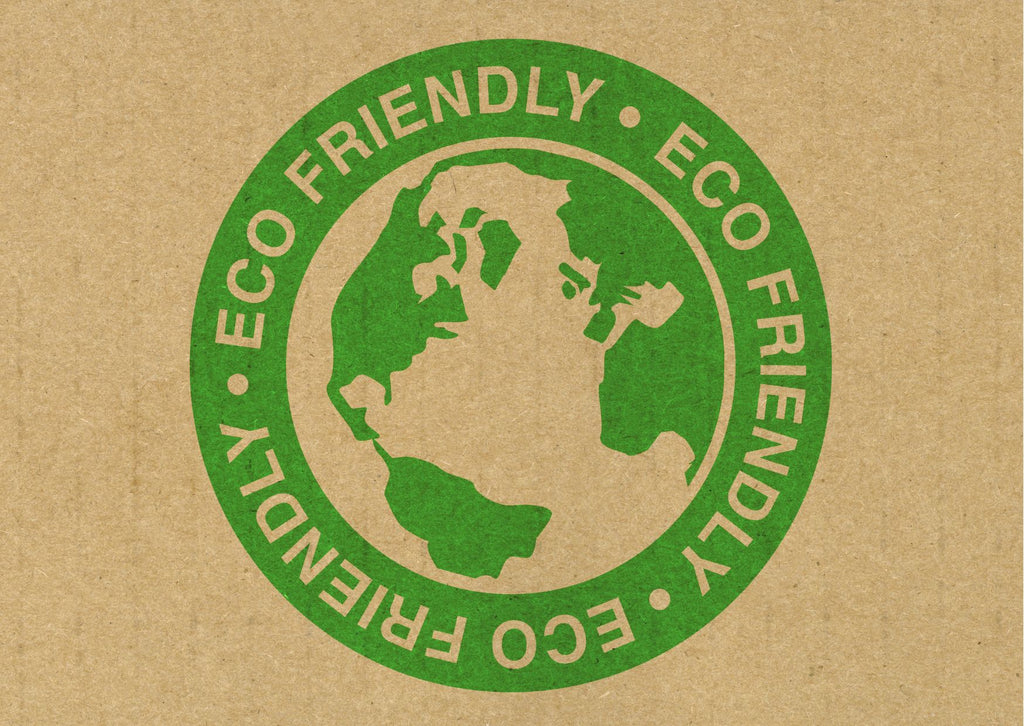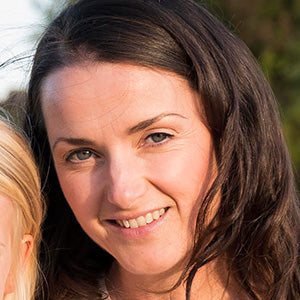'Three-quarters of people don’t understand what organic means.'
A new survey commissioned by the Organic Trade Board (OTB) to coincide with Organic Textile Week suggests that three-quarters of shoppers don’t understand what organic means when it comes to clothing and textiles.
And even those that do, it’s possible that the idea of organic clothing still conjures up an image of a scratchy oatmeal hemp-type fabric. A literal and metaphorical hair shirt.
But organic clothing and textiles have come a long way since those days - and the sector now produces the softest, yet most hard-wearing fabrics, suitable for the most sensitive skin, due to the lack of toxic chemicals used in its production.
What is Organic Textile Week?
This week sees the UK’s very first Organic Textile Week, dedicated to raising awareness about the benefits of certified organic cotton.
And I’m super proud to say that as the founder of My Little Green Wardrobe, I have been instrumental in developing and shaping the UK’s first awareness week centred around organic clothing and textiles.
The inaugural Organic Textile Week is taking place 15th - 21st May 2023, and will also be planned for the third week of May in future years.
This year the focus is on how to help identify and combat greenwash.
So, what are Organic Textiles?
Organic fibres can consist of plant-based fibres - eg. cotton, linen, hemp and animal-based fibres like wool and silk, which can all be produced using organic production processes.
Both types of fibre are grown and processed to rigorous organic standards, like the Global Organic Textile Standard (GOTS), recognised as the world's leading processing standard for textiles made from certified organically-produced raw materials.
At My Little Green Wardrobe, GOTS is one of our mainstays and we primarily work with brands producing organic baby and kids clothing certified to this standard.
What’s fantastic news is that any certified organic farm - be it a farm where organic wool, linen, cotton or hemp come from - will be using methods which are beneficial for nature, wildlife, and people.
Why organic textiles are good for wildlife and nature:

It is not just wildlife and nature, who can benefit from certified organic practices. The farmers themselves, and workers in the production chain, are taken into account in such organic standards, like GOTS.
Why organic textiles are good for people:

How can consumers make eco-friendly purchases and avoid greenwash?
Firstly, it’s crucial to acknowledge that from a standing start there is a lot of very complex information about clothing and textiles and their value chains, that as a consumer it is difficult and daunting to try to wade through.
Let’s face it, the majority of people simply don’t have the time, inclination or expertise to get their head around the production processes of different textiles.
So I see it as my job as a brand and retailer to make this journey as easy as possible for our customers.
At My Little Green Wardrobe, we break down information in an easily-digestible format and let our customers shop according to their own values.
In this way you can prioritise the values that are most important to you, whether those be social values, inclusivity, or align with a vegan lifestyle.
But more than anything, as the OTB’s survey highlights, shoppers need help understanding what organic textiles are and why they are beneficial.
Organic Clothes vs Organic Food

There has been a great deal of education in the food sector to normalise organic produce and extol its virtues not only in terms of the environment, but also in terms of the health benefits and QUALITY people can expect.
I think there needs to be similar messaging in the textiles sector. It needs championing.
I want to work to educate and inform consumers, that clothes can look good, feel good and do good at the same time.
But we need to raise our collective voices to shout much more loudly than we currently are about the good our businesses are doing - and to educate shoppers about the issues at play.
The problem of greenwashing
The problem of greenwashing is real. And fashion is absolutely one of the worst offending sectors.
Earlier this year a study found that fashion was one of the three worst-performing industries when it came to forming credible climate action plans. The other two are fossil fuels and the hospitality sector, in case you’re interested.
The issue with greenwash is that shoppers become confused by the powerful marketing messaging from brands.
As already mentioned, sustainability is not an easy field to navigate for consumers because of the complex and abstract issues at hand.
And the worst thing is when shoppers, who are minded to make an eco-friendly choice are duped into making a purchase of something that has limited or no green credentials.
In 2021, there was a report which said that the ‘eco’ collections of a number of fast fashion chains were found to actually be MORE damaging than their regular collections.
Not only have shoppers supported the unjust system that they were hoping to avoid, but the businesses that really are supporting more ethical practices have been denied a sale, making it that bit less likely they can go on trading.
The reasons behind geenwash are manyfold and range from ignorance and incompetence, to corruption.
How can brands and retailers fight greenwashing?

What we do know is that many of you DO want to shop sustainably and make good choices. And you want help to do that.
And what we’ve also found out, from the Organic Trade Board’s new research, is that people DON’T like being misled or being lied to and act accordingly.
In the OTB survey, a massive 70% of people said they would turn their backs on brands that were found to be making false claims about their products.
Brands need to be sure what they are saying is 100% accurate. It’s crucial they double-down and check all their sustainability and ESG claims really do check out, otherwise they’ll lose customers - and potentially face a lawsuit.
And the key thing to know for both businesses and consumers here is that you need to look at a brand’s entire offering and get to the very heart of their business practice. Rather than tinkering around the edges, or with just one collection, for a little bit of good PR - they need to incorporate more environmental and socially equitable strategies across the piste.
Brands need to understand how their offering is an improvement on the current norm - then communicate that simply, effectively and truthfully - without hyperbole or exaggeration.
And after that continue the work to do better.
What can you do as an individual to fight greenwash?
Read my article here for steps each of us can take to try to avoid falling victim to greenwash. My key tip is to look for credible third-party certifications like GOTS - - which certifies the whole supply chain for environmental and social issues.
And look for science-backed specific claims, which explain the exact way something is more eco-friendly rather than nebulous claims.
Question whether a brand you previously thought of as a fast fashion brand really has had a change of heart overnight, or whether this might be just the result of a marketing campaign.
Think about all of the additional processes, auditing, certification and cost implications that might go into making a more socially responsible and eco-friendly product, and if the product in front of you seems too good to be true, that’s because it probably is.
How to get involved with Organic Textile Week

Please take a look around this site and at my other blog posts, which have lots of info around the benefits of organic and a more sustainable approach to shopping.
And make sure you head to the Organic Textile Week website which is packed with resources and insightful posts from other businesses working in the organic sector.
If you haven't before, why not give organic a try this week by buying an item of certified organic clothing.
And take advantage of our Organic Textile Week 3 for 2 special offer!
You really will appreciate the premium quality, which is designed and manufactured to last longer - along with the knowledge you are investing in quality organic kids clothing that benefits people and the planet.
With love,
Lucy
X



 Author: Lucy Todd
Author: Lucy Todd